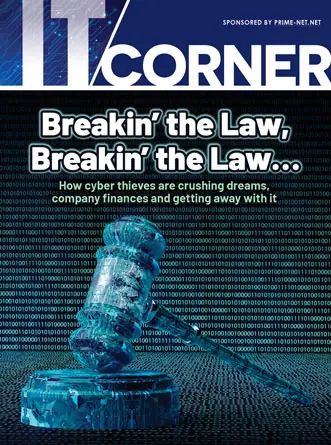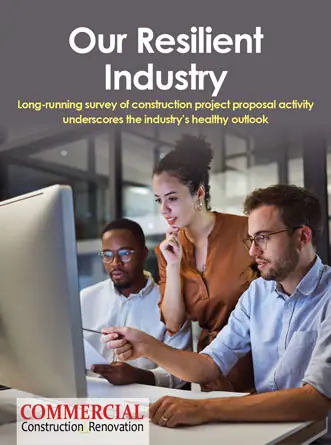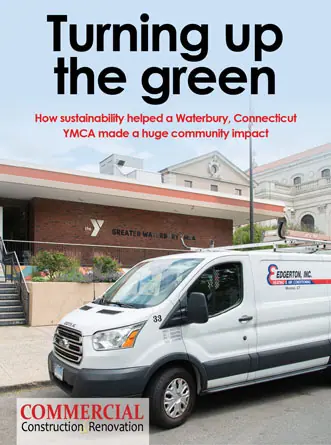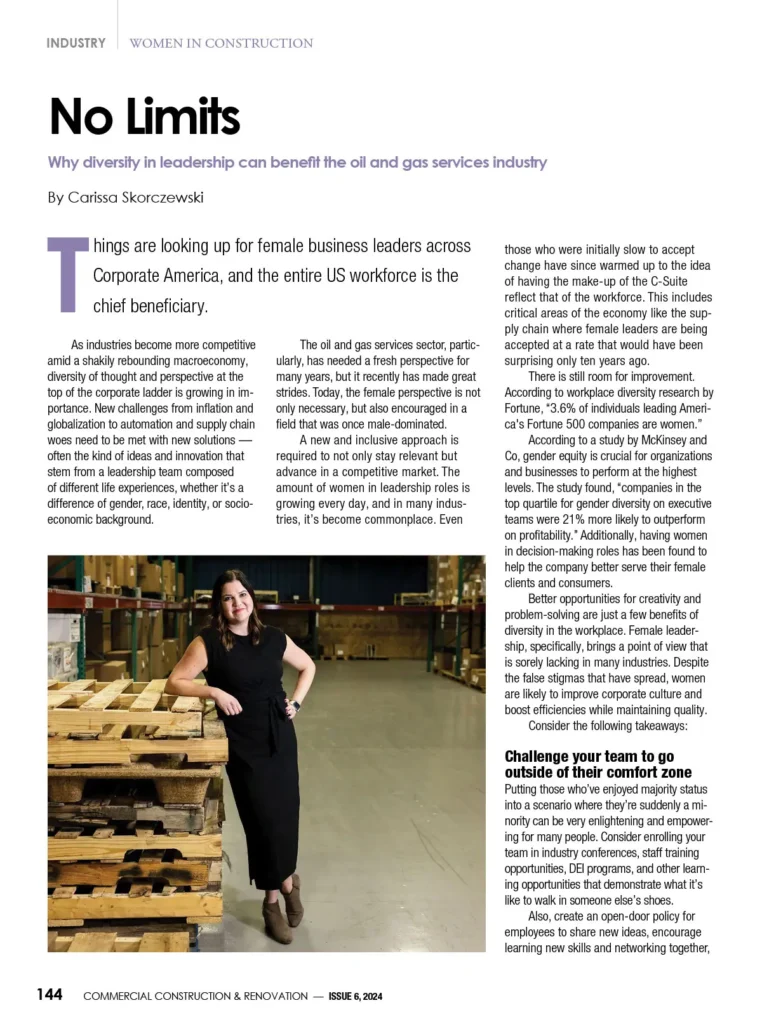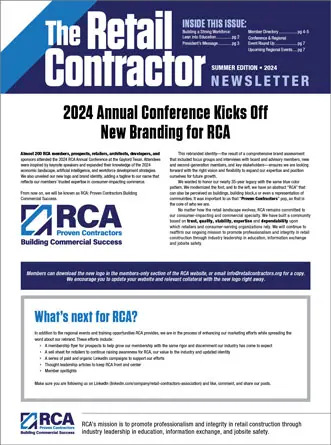– Do you know what you would do if your company was attacked by an email phishing scam and all your data was lost?
– Are you in a medical field but not sure if you are HIPAA compliant?
– Is your business growing and you are fed up with not knowing the best equipment to buy or with the headache of onboarding new team members to your technology?
– Could you use a partner who understands how to use technology strategically in your business?
– Do you already have IT support but they take a long time to get back to you and don’t always fix the problem?
Technology Response Team can be a strategic advisor as you grow your business. If anyone on your team has a computer problem, they will rush to help you (within minutes, not hours). They can also help with your VOIP phones and mac computers. They’ll make sure we’ve got your cybersecurity covered, because the sad news is that criminals love to target small businesses, who can least afford the damage.
They will check in with you quarterly to let you know how your computers are running and to talk about how they can eliminate your tech headaches (and maybe make your tech dreams come true!). Whether you are starting a new business, expanding your current network infrastructure, or you need restoration and disaster recovery services, they can help. The staff is fully qualified and certified to handle any request, no matter how big or small. They pride themselves in providing the highest level of customer service to all of their clients. Enjoy the conversation.
https://www.technologyresponse.com/
Transcript
Hey there, Commercial Construction Coffee Talk fans, thanks for chiming in. My name’s David Corr, and I’m your host. I’m also the publisher and editor of Commercial Construction & Renovation Magazine. This is what it used to look like; we’re digital now. Okay, I’m just grabbing things out of the archives. This is July/August 2018, Todd Carmichael, co-founder and CEO of La Colombe. They were a coffee shop actually out of Philly. Todd, thanks for gracing the cover way back when. Another good-looking issue, this one was 148 pages. I always like to see where I was at. Here I am, I’m up in Buffalo on the jet boat underneath the Niagara Falls River, and it was an awesome time up there. We had our women’s retreat back there. The Falls was great, then we had lunch in Leon, and then we did the jet boat below the Falls, and it was awesome. People got very wet, but the jet boat was really cool. So, that was a really fun trip, but it’s always nice to hold the magazine to see what was going on way back when. Actually, I had a little more hair back then, you know, but oh well, what are you going to do. But we went, last issue we printed was August of ’21 when we had the VP of construction of White Castle on our cover, and we haven’t looked back since. I want to thank everybody out there that’s been hitting our website and consuming content and the videos, the magazine, and everything else that we do. Couldn’t have gotten there without you. You’re gold in my book, and this is Thanksgiving week, so I’m thankful for your relationship with us up on the web.
So with that said, I’ve got a gentleman out in one of my favorite states, and I know what I’m going to say, Denver, Colorado, because I’m a Dupo. Anyway, his name is Chris Hail, and he’s the CEO of Technology Response Team. He’s an IT guy. Say hello to our listeners out there, Commercial Construction Coffee Talk Chris.
Hey, nice to see everybody. I’m glad you’re on. Thank you for having me.
Absolutely. Once again, the way that Chris got on his publ sent me a press release, and we just had added our IT column. So I’m all about IT these days, and with our new column in the magazine, I was like, hey, this would be a really good guest to have on there. So welcome to the show. The way it works is, you’re going to tell us your story, where you grew up, where you went to school, any children, dogs, cats, what have you, and then how you ended up where you are today. Then we’ll talk about lessons learned from the roller coaster that we’ve all been on over the last three and a half years, and then you’ll leave one positive thought or phrase and your contact info. But before we get into your story, I do have a sponsor. They’re called The Contractor Consultant, and it’s a short little video. So please enjoy it, and then we’ll pick up and we’ll get back with the show.
Hey everybody, for all you contractors out there struggling to hire, I want to introduce you to a partner, dear friends of mine, The Contractor Consultants. This is the company that is putting recruiters and staffing agencies out of business. So if you’re a construction business right now and you’re struggling to hire, you want to grow and expand your team next year, and you’re sick and tired of sifting resumes and all the administrative burden of hiring, well, I’ve got something very special for you. These guys have figured it out. They’ve made construction hiring faster, easier, and a lot more affordable. They’re endorsed by ZipRecruiter, Indeed, and they work nationwide across all 87 industries. So if you want to put your hiring to bed for a small monthly fee and learn a new way, a better way, a more effective way to hire in our industry, schedule a call and learn more about this new hiring solution. Text H to 66866, that’s H to 66866. Worst case scenario, you show up on the call, and you’ll learn a few things you didn’t already know about hiring. These guys wrote the book, the course, and are doing it every day. Welcome to the show, and thank you for listening.
Alright, everybody, thanks for watching The Contractor Consultants video. Hopefully, you got something from it. Listen, if you’re hiring people for your construction teams and so forth, give them a call, use the text number I gave to you, and have a little discussion with them. They can help you. They’re experts, they do it every day, just like I said in the video. Hopefully, they can help you as well. So with that said, Chris, you got to tell us your story, so the floor is yours.
Alright, I am a native to Colorado, which is kind of rare nowadays. I’m sure back in your day, most people were natives. When I was growing up, it was a lot of Californians, you know, you were either from the East Coast or the West Coast when you went to school at DU, and I was one, you know. But now all The Californians, instead of just going to school and then going back, they’ve all moved in. So it’s a completely different state than when I was there in the 80s. I was there when they had the USFL, the Denver Gold, the Denver Zephyrs, the Rockies weren’t there, the hockey team wasn’t there. Well, they had a pro team; it was terrible, and then they moved them up to Quebec. But now you go back, and it’s unbelievable between Denver and Colorado Springs. It was rolling green hills when I was there; now it’s just basically a corridor, an outskirts of Denver, in my opinion. They got the train, you know, Centennial was a little dinky town; now it’s huge. Aurora, I could go down the list. But I always do, you know, whenever I go out, I go and drive around, I go through DU, see the coaching staff and stuff. But it’s amazing how much they’ve built in the outskirts and in there for sure.
Yeah, I grew up in Aurora, and Aurora was tiny. I mean, actually, after this call, I have to make a drive down to what used to be fields in Aurora for a client, and now it’s houses and businesses and everything else. I mean, these are places that we used to go in high school to hide out from the police to go have our little keg parties that we would hide from, and now it’s nothing but residential and business area. So yeah, went to Smoky Hill High School in Aurora, not far from Cherry Creek Reservoir we were talking about earlier. And no, and then went to CSU, I played lacrosse and football in high school. College didn’t do a whole lot, just had a, I did computer information systems and then exercise sport management as my minor and kind of just fell into it in the long run of things and got into it, worked for Sports Authority, which was great when they were around. There used to be one up in Frisco, Dillon actually, that we would go up to, and because I was an employee in their IT group, we got cost plus 10%. So you go there and buy like $40 pair of gloves for like five bucks, so like, oh nice. And I would stop there every time on our way up to go ski like Keystone or Breckenridge or whatever, a basin. And then kind of fell into that, then got into what we call managed services, which what my company is now, worked for some small companies, had a buddy that came to me and wanted to start a company, and we started this, and I’m the lone survivor out of the beginning of that, and that was in 2010. So kind of gone through that, married, have two daughters, one goes to ASU, and she’s into, she does graphic design with ASU as her major. Younger daughter, got a couple of dogs, a Border Collie, and a three-legged miniature Australian shepherd. Basically, the whole thing has just blossomed from a one-man shop to multiple employees and we’ve just grown year-over-year and become an established thing, so it’s been a great ride all the way around but definitely interesting. Well listen, it’s always nice to talk to a Denverite. You know, like I said, it’s kind of like my second home. When I grew up, my parents used to take me out of school for a month from New York and Philly, and I’d get tutored and learn how to ski on Buttermilk. My dad loved Aspen, and then my uncle moved out to Vail in the late 60s, and he basically was a contractor, built everything. So we had a house there for over 30 years, and I’m very fond of Denver and the mountains. We used to play CSU, Northern Colorado, CU, all in lacrosse back in the 80s. There were no leagues, so we’d play School of Mines, Air Force, and Colorado College, our big rivals in lacrosse. But during our spring break, we’d either go out west and play all the UCLA, USC, Whittier, etc., or we’d go down to Florida and play in the tournaments down there. Now they’ve got their own lacrosse field and everything else, and it’s blossomed. The hockey team is still killer, winning National Championships, or they’re in the hunt to raise the cup again. And obviously, they just took out CC last weekend, I think it was, to get the golden pan again. So that was always a fun rival to look at. All in all, a ski, ex-lacrosse player, were you a d-pole, a midi? What?
No, I was a midi. I was smaller then. I graduated high school at like 155 pounds and then my freshman year of college shot to like 190. So yeah, took a listen. CSU, they had a good team, but now they’ve got a D1 team, I think. Lacrosse back then was just getting started, and a lot of the high schools had, but now every high school, just like here in Georgia, all the high schools have lacrosse teams, and it’s very competitive. It’s just good to see the sport obviously with the pro-league getting more exposure on TV and on the web. And it’s nice to have Air Force and other teams, even if they’re club teams, pushing the sport, and it’s good to see that it’s made the growth out in the Rocky Mountain region.
Let’s talk about the roller coaster. So back in March of 2020, everything basically comes to a halt. There was low unemployment, cranes everywhere, construction was booming, and it was “Oh, it’ll be a couple of weeks”, and a couple of months, and here we are three and a half years, and we’re still talking about it. Talk about some of the lessons that you learned as you went through that roller coaster ride and that our listeners out there, Commercial Construction Coffee Talk, might find of interest that they might be able to apply if they haven’t already.
The biggest thing that we learned is we had to go from taking all of our clients being a brick-and-mortar type situation, having offices to going to remote in a matter of a week or two. I mean, all of them, top to bottom. With that came a lot of cybersecurity concerns, and those things got taken advantage of over time. The cloud environment is a great environment for the remote and great environment to share things through but also just a very precarious cybersecurity situation. So we had to take all of our clients to keep them up and running. We had to move it from everybody working in the office to everybody working at home within a week or two, which was a huge impact on my team. That was a lot of work, and then from that point on, it was being more reactive in the beginning and then becoming more proactive as time went on to the cybersecurity issues that were coming down from that. Making sure that we had multi-factor authentication on everything, making sure that things were controlled. One of the things that came out of that is the zero-trust, which is basically the idea, either on the application level or the software level, that the individual or the application trying to run only has access to the things they needed because if those things become compromised from somebody from the outside, a bad actor, or whatever, it allows them to do just amazingly terrible things and move laterally across the company. And really, the low-hanging fruit was the big piece that people were looking for. It’s not the top-end hackers; they’re looking for the low-end that are looking for the people they send a phishing email to, the things that allow where you give away your password, you give away these things and have the ability to get in and just do a lot of damage, not just to the company but we’ve seen it where they’ve gotten in and got into people’s HR records and able to get to Social Security numbers, account numbers, those kinds of things that cause some real damage.
You know, securing on the web, it’s a double-edged sword because if you ever need any help, you can’t get anybody on the phone. That’s my real beef with any, you know, listen, when I went digital, I’ve taken classes on this whole thing. I’m just about ready to launch my digital agency, but security is just so important if you’re going to have a presence on the web. What’s amazing is you can launch a website and in about 30 seconds, you’re getting attacked by spiders or bots or whatever it might be out there. And it is just crazy. Last year, I had about 29 million people that hit the website, and that was right when Elon had bought Twitter and was found out that a lot of the bots were a lot of the accounts were fake and all that kind of stuff. So I asked my web guy, now my web guy, he was a cybersecurity guy in the Army, he also was at the Fairfax County Sheriff office in Virginia, still has a security clearance, and he’s all about security. So I said, hey, we have all these people hitting. I’m just curious how many of those are bots. So we found out that about 20-25% of those were bots on our stats. So I want to be transparent with everybody because I get people that send me content to post, and you just don’t know where it’s coming from. It’s coming from all over the world. Some of the most people that I deal with these bloggers are on the up and up, but you know, they put these little tracking things in there or, you know, I’ve got serious software, you know, antivirus on there, and I see when I’m getting blocked. But so we put the software on there, and I go through it, and it is just amazing how many people are trying to attack it every day and you know, get in there. And it’s a nightmare. I mean, I literally think that hackers are terrorists in my opinion. They just don’t have time for them because I’m just a small business guy trying to get by, and I don’t have time to be getting my site shut down. And it doesn’t make Google happy, and it really is a battle. I mean, every day it’s a battle. But this is why I had you on there because right now, in the world right now, there’s just so much volatility that there’s been a serious upswing on it and security. Am I right about that?
Yeah, I mean, 100%. And AI is just going to take it to another level. AI changes things 100%. The automated piece of things, the ability for these hackers to use automated processes to do damage is phenomenal. And the companies are becoming more cloud-reliant; they’re moving their networks to being purely cloud. When those things are unsecured, and a hacker can get in and just move through their system so quickly, they just run rampant.
Scripts, they run things and they just automate this whole process that runs through that does so much damage so quickly that it’s hard for a normal person even to keep up. And it’s once they’re in, it’s really difficult to mitigate the problems that come with it. And everybody thinks that the ransomware is the bad part, which it is. Those things when they load something on the machines or load something out there and they use your automated software to push these things out, but really what they’ve done, at least if they’re good hackers, they’ve sat out there for months and watched who you talk to, how you talk to them, what your invoices look like, how the communications go within your company. They figure all these pieces out, and by the time they’re kicking off things like ransomware, they already know everything about you. They know how much money is in your bank account, how to get into your bank account, how to communicate with your clients, how to look like you when they send out things. They’ve changed rules within your system so you’re not getting the emails that you think you should be getting, and they can choose what’s going to you. They can do a lot of damage really, really quickly.
Oh yeah, I mean, listen, now we moved our site to another host last year. It’s so big that there’s only either I had to buy a server, which I didn’t want to do because 6 months after I purchased it’s going to be obsolete because technology is at warp speed, and there were only a couple hosting services at the time that could take it. We’re moving it over here to another host this weekend, and just with all the security protocols and everything else that we have to deal with, it’s very, very time-consuming. But security is the name of the game if you want to be on the web, and down the road, everybody’s, there’s eight billion people on the Web currently, but business down the road, everything’s going to be done on the web. So if you’re not, if you don’t understand about it and how important it is, and they might not be the, you know, the construction is a flashy thing, it doesn’t have that flash in my opinion, it is the most important tool in your tool belt if you want to run a company because if you’re not safe on the web, you’re just flirting with danger. And a lot of times, some of these software companies that are out there when they do get hacked or what, they don’t let you know, and they point fingers at everybody that, “He, I didn’t do it, they did it”, you can’t get any word. Just like, you know, my podcast platform, we got a critical warning and that there was a hole or a patch that was needed on their software, and I messaged them, I said, “Look, I’m unplugging my plugin right now because I don’t want to get hacked, you guys need to get this fixed. What’s your ETA to get this done?” And they were like, “Oh, we’re very aware of it”, and they dragged their feet. You know what I did? I just sent them an email and said I’m moving on to another host because you guys just aren’t taking it seriously. And when I get it, when my software tells me I have a critical warning that there’s a hole in one of my plugins that I’m using to operate under, I don’t want to have that guy get in that hole and, like you said, hang out there for three or four months. You know, and I got nothing to hide, but the bottom is I don’t want them getting in my checking account, I don’t want to see him, you know, some of my emails and stuff. But that hole is there, it’s like a little mouse. You think that, you know, I just had my boat winterized for the winter, and I told my son, “Maybe I should put that plug in there, you know, mice can get in there and I want him to be in there all winter and, you know, making a mess of things.” It’s that little tiny little area that you let someone in that you don’t know about, and they don’t take it, and they’re taking it for granted. But so many people get these warnings and they don’t even look at it. I do, and the minute I saw it, I emailed my web guy, and I’m like, “Hey, what’s up with this?” He’s like, “Yeah, we got to unplug that thing because we’re not sure when they’re going to fix it.” And of course, they come back, “Oh, we want to keep you as a customer.” I’m like, “You going to get it fixed?” And they couldn’t give me an answer. I’m leaving, goodbye. You know, but it offers someone else, you know, just like yourself, you started your firm, it’s capitalism. So if they don’t get the customer service and everybody jacks their rates, you know, they start out low, their customer, and then they get greedy and they jack their rates up. So I’m just looking for more affordable, with the same amount of security or better, you know, to host my sites. And you know, competition makes the world a better place; it makes you better too.
So maybe I’m going up the wrong tree, but am I right on that?
No, you’re right. And I think when we come down to these ideas of not plugging your holes and when you know that you have a security risk, you take on a form of liability within that idea. I mean, you have to do your due diligence. Like if there’s a known security risk, you need to mitigate that right away. And that’s one of the big pieces people don’t realize across the board, especially small companies. They don’t think they’re a target, but they’re the easiest target. Their security levels are much lower; they don’t have all the processes and policies put in place, they don’t have the experts coming in. Yeah, they’re not going to hackers aren’t trying to get millions and millions of dollars, but you lose $100,000 from a small company, and it can wreck that company. And it’s not even that, just your reputation. If your clients get hit and it looks that then all a sudden, if they’re hit through you, or they spend money on a false invoice, you just can’t get back. I mean, your reputation takes a hit. It’s a massive thing, and then knowing that you have a hole and not fixing it, I mean, that’s just a huge liability all the way around.
Oh yeah, yeah. And you know, I got rid of, you know, listen, I’m not going to mention names, but I got rid of my antivirus, and he gave me this serious antivirus to put on my computers and my systems, and we put on everybody’s. And this thing, it tells me when I’m getting attacked, they blocked it, it gets way deep down there with malicious and Trojans and horses and all this thing. And he just said, “Hey listen, if this thing doesn’t catch it, you’re pretty safe with what you’re using, but what you’re using before doesn’t work.” So listen, I called the other said, “Look, I you know, I’m getting rid of you, you just you’re not up to par.” And there’s so many people out there that just use the basic antivirus that’s out there. You got to do battle today on the web, you know, listen, practice makes perfection. You got to have some serious antivirus that’s on there that’s going to put up that brick wall. No one’s going to get through. And one thing you need to be mindful of, though, is antivirus is the bare minimum.
Oh yeah, absolutely tracking all that stuff, yeah.
They’ve changed, so what they’ve gotten really good at is using systems that aren’t considered viruses to your antivirus, like IP scanners, KY things that can be tools that are used with IT that your antivirus isn’t going to pick up on, that they can load on there and do massive damage. They also use some of the native functions of like things like Windows to call out and pull things down, PowerShell’s one. There’s a couple of other ones that they can use, and they use like macros within Excel and Word like when you hit, “Do you want to enable this macro?” They can use things like that that do call outs. So the new antiviruses are called EDRs, and basically, they’re way better. They do much better at tracking, do all the things you’re saying. Then you have some next-level stuff like we’re talking about the zero-trust stuff, where you actually have an application on your machine that learns the applications you use. You set it, and then anything else isn’t allowed to run, just period, not allowed to run at all. So whether or not they load something on there that is outside of antivirus, it still can’t run. It just controls the environment. That’s where things are starting to go. It’s getting to the point where you’re trying to figure out how to do productivity plus security, and that’s where the real balance is coming now.
Yeah, like we, you know, listen, before the roller coaster started, I, you know, I was blogging but not at the volume. That I’m doing today and I can go to bed at night and by the time I get up early in the morning, I’ve got all these requests for content to be posted up on the site. With the new software that we put on there, there might be an email that I got, and I never open it, I always preview. Don’t ever open up stuff, I just preview to kind of look at it. But the bottom line is, I’ll send it to my marketing person, and then the software will say, “Hey, this is, they’ve got pixels, they’ve got tracking in here,” or it won’t let me open up the site. We just go back to these people and say, “Hey, you’ve got something wrong with your site, or whatever. I can’t have you on my site because you might have something and not that I don’t trust you, but I don’t know who the heck you are. You’re just some dude.” Especially if they just use a Gmail account, it’s very dangerous. Everybody’s got Gmail, but if they’re not using a company address, you’ve got to be so wary about it. Just these little links, they could cause so much havoc. It’s just, you know, I just had a kidney stone that I passed in the beginning of August, and once I passed it, it was just a little speck, but it caused so much pain over a week. Oh my God, so that little email, you think that that’s nothing, oh my God, it can cause so much headache for you if you’re not careful, you know. And, you know, it’s like anything else, you lock your door at night, you might as well lock your web too, you know, or your website door, whether it’s your front door, your back door, your side door, your window, your roof, because they’re trying to get in there any way that they can and just make life miserable for you. And they don’t care about you at all. So I’m glad that there are guys like you out there, especially like my web guy. I mean, I found him on Fiverr, you know, it was one of those things. I just wanted to find someone that was local in the states, and he was military police, and I was like, “Yeah, man, let’s go rock and roll.” And it is probably one of the best decisions that I made. But it was in my mindset that wow, we have so much content on there that the last thing I want to do is have someone go in there and just wreck it. And they can do it. It’s like letting the bull in the China store and just turning your head, and all of a sudden, man, everything’s broken. And they can use it as a way to get to people getting to your site too. They can use it as a vector to attack from. So you might not even know they’re doing it. People going to your site could be attacked through things like links, things like that, that are loading things onto their machine they don’t know about. So, smart hacker is not going to cause damage, they’re just going to use you as a vector to spread their chaos.
Did you see an uptick, you know, before the roller coaster started, or was it already an uptick? We had made some big changes to what we were when we started. We were more of a reactive, break-fix type, coming in just fixing people’s networks, doing things like that. We were already there, there was an uptake, and we were becoming much more of a proactive shop, which is where we are now. We’re purely a proactive shop; we don’t do a lot of the reactive unless we absolutely have to within our clients. But we were deeply getting into cybersecurity beforehand, and then when it got going, we got into it big time. And then since it’s actually even gotten worse. We’ve dealt with some major cybersecurity attacks that have been, we had one back in September against one of our largest clients, which is a 3,000 employee company. It was Russian. They knew what they were doing, came in full attack. We mitigated it luckily just in time, but still, it was something like between my team and I was a couple hundred hours of work to keep it, to get it mitigated and just, yeah, they’re insane the way, and they just, they used Intune, which it’s not Intra with Microsoft, which is basically their cloud version of what was called Active Directory, where you have a server, they controlled everybody how they logged in. Now they have a cloud version of it, which is where everything’s going, but they had a South American piece that wasn’t secured on one of their admin profiles, and they got in through that and were able to spread super quick. And once they found out that we had figured out what they were doing, they kicked off the ransomware. But luckily, we had multiple layers. We try to layer our cybersecurity approach. So your antivirus or EDR, and we have what’s called a SOC, Security Operating Center, that we that’s a third party that basically monitors everything, is able to shut machines down if they think they’re being part of an attack. And then our zero-trust piece, and then we have this thing called DNS filter, which is another piece to the whole puzzle. But because those things were put in place, they were able, we were able to stop the ransom from kicking off and basically crippling their company. But yeah, it was a lot, and we’re still dealing with it because now they’re on the radar. So the amount of attempted attacks into their system every day is constant. I get calls from the SOC every day, every other day of this user has been compromised. We’ve had to shut it down. They’re just, they’re brute-forcing. Luckily, we’ve done a really good job of controlling and securing the environment, but it’s going to be a constant fight with them going forward.
Oh yeah, listen, it’s not going away. It’s only going to get more in-depth and harder and harder. Who’s going to stay in front and know more knowledge, you know? That’s the game. But it’s like lacrosse, hey, you can watch film all week, and by the time the game starts, you might have an injury, or something might happen, and you’ve got to scrap that plan and figure out how you’re going to get, you know, halftime, you know, retool, replan how you’re going to try to win at the end of the game. And you know, listen, as long as you win, winning ugly is not, but I’d rather win ugly and be safe than lose and have to deal with a lot of damage, you know what I mean?
Yep. And so, what do you see moving forward as we go into 2024? You know, what’s the newest coolest thing that’s going to come in, you know, with IT? Just in general, I think as a whole, it’s going to be education. I think the it’s not the sexiest, the most pretty thing to go out there, but I think companies are going to learn to really educate their employees. I think what it comes down to is it’s not the hackers aren’t trying to brute force their way through things. They aren’t using these crazy tools. What they’re doing is they’re just tricking the average person that’s busy, that has things going on, to make the mistake. And that’s been the low-hanging fruit, the low-hanging fruit is always going to be the key piece for them. I mean, you’re going to get to the level where, like if you’re a big company, and you’re a target, you’re going to have some big players coming after you. But as a whole, it’s educating them, it’s making them understand how they’re like what emails are, are not what they think they are. It’s also setting up your systems so that it’s telling your employees like you can set up your email to say, “Hey, even though this email looks like it’s coming from inside the company, it’s not.” Like little things. But I think education is going to be a big piece, that’s where we’re going with a lot of things. I mean, there’s a lot of tools out there, there’s a lot of things that we put out there that are pretty cool and they do a lot of cool stuff, but they can still be gotten around if somebody gives out their password, or somebody links. And now even with MFA, you have these things called man-in-the-middle attacks, where they put a proxy in between what you’re trying to log into and where you’re logging in from. And it sends you back your MFA idea, and you put your MFA in, it passes along, and you just bypass the whole MFA. So it’s really education that is going to be the key piece. People have got to learn to teach people. They’ve got to put policies and procedures in place. They’ve got to be fast acting, making sure you’re getting backups, making sure that you’re securing those backups. It’s just going to be part of it. It’s like the whole HR thing with like sexual harassment, like it got to the point where it had to be talked about all the time. Cybersecurity is going to be the same thing, it just needs to be talked about. The more it’s talked about, the less low-hanging fruit you’re going to have out there to take advantage of. And sometimes, the low-hanging fruit is you, the owner of the company, because you’re busy, you’re doing things, and you’re not paying attention. You can click things. We had another client that one of their top developers, who knows better, accidentally clicked through, and he had admin rights. Luckily, he caught it right away, but he gave out his password. We were able to mitigate it really quickly, but anybody can be hit just because you’re busy and you click on something. You just aren’t thinking at the time, or maybe you’re stressed out about something, and you’re in another world and click through something. But I think education and testing and understanding things helps a ton. So, I always tell people, when in doubt, don’t open it. If it’s in your junk box, it’s probably junk. You just have to look at things and, believe me, I get so many emails today, and I’m not perfect. I’m going to make mistakes here and there, but my IT guy, he just reads the riot act once a week with whoever’s on, you know, we have a small team, but the bottom line is, we’re all going at it. The last thing you want to do is just be not live on the web because time is money, and it’s money to get things fixed too. And you want to pick the right IT guy that has the same vision, and you want to do some background checks on these people because you never know who’s going to go in there. You’re kind of like an attorney, just about. You’re going to find all the little things that no one knows about and see stuff. It’s just, I tell people, I used to tell people, look, when you go and become an entrepreneur, start your business, you want to have a good attorney, you want to have a good doctor, and you want to have a good CPA. Now, you can add an IT guy there too, because he’s the backbone. Without them, you’re F’d. You just don’t have any protection; you don’t have a face shield on, you don’t have any gloves on. You’re just going to get hit eventually by someone.
Very, very informative. So listen, if you’re out there in Commercial Construction Coffee Talk land and you’re thinking about upgrading your IT or you had an issue and you’re not sure if it got fixed or whatever, if someone wanted to reach out to you and find out, bounce some questions off you, how would they contact you?
Our website’s technologyresponse.com. They can connect with me directly at chris@technologyresponse.com, or they can hit info@technologyresponse.com, and that goes to my team. So either way, easy way to get a hold of us. The website’s super friendly, easy to navigate. It has some reviews and things on there to add some credibility to who we are and what we do. And like you were saying, finding somebody that fits the culture of your company is super important too. The IT person that has the same kind of vision business-wise, that’s one of our key pieces too for us, is working with clients that share a similar culture and vision that we do. You know, I always like talking with athletes because they get it. You might have a great team, but you have some guy that has a chip on his shoulder or a bad attitude or he’s negative, and you don’t want that going through the locker room or on the sidelines, and that guy’s got to go because he’s a detriment to the team. So when you’re picking your IT person or your attorney or whatever, someone that’s going to help you with your business, having that same vision and just mindset is such a plus. Because after you hire them and you spend all your time, and then it doesn’t work out, and then you leave, then you’ve got to start over again. You can’t unspoil milk. That’s the thing, is like once somebody’s spoiled milk, you can’t unspoil them. You can hope, you can pray, you can do whatever, but once somebody’s spoiled milk, you can’t unspoil milk. It’s just the way it goes. It’ll spread throughout the team quickly.
Yeah, absolutely. Hey listen, if everyone wants to get in touch with me, I’m David C at ccrrdm.com. Listen, like I said, the way Chris got on here, a publ sent me a press release. I just launched our IT column a couple of months back, so I thought it would be a good time to have him on here as well as we were at the end of the year. So people are thinking about what they’re going to do for 2024. If you’re not IT secure, this is one of the things that should be on the top of your to-do list, in my opinion. And look, it’s like playing the lottery; if you don’t buy a ticket, you can’t win. So if you don’t send me something to look at, I can’t either put you on the show or it’s very tough to get in the magazine. But a lot of content that we get, we post it all on our social media. We blog every day. So let me be the judge. It can be an anniversary, a new product announcement, a charity golf tournament. You know, one of the things that I found out over the last three and a half years of the roller coaster is there’s more to life than just work. So I post stuff about how to buy the right insurance or the right cell phone or even how to buy the right hair extension. Shoot, there are, you know, guys think that they’re girls some days, or you know, girls think they’re guys. Hey, listen, they want to learn how we put that up there too. Half my circulation is female, so we got to cater to them. But we look at everything, and we’ll send you the link, you share it. It’s good for your SEO, which is search engine optimization, finds Google. And that’s what it’s all about, making sure that the algorithms find us. And on that, listen, hit that like button, hit the subscribe button too. This is a very important topic, so everybody can get this story that Chris is talking about, you know, about his firm and helping clients keep their computers and networks safe. And it’s a very important issue, and if you’re out there in the business world, you know exactly what I’m talking about.
So Chris, as we finish up the year and we’ve got a month left, you got Thanksgiving coming up this week, and then Christmas, Hanukkah, I’ll throw Festivus out there for those who know what that is from Jerry Seinfeld way back when, and then New Year, and boom, we’re going into 2024. If you had to leave one positive thought or phrase with our listeners out there in Commercial Construction Coffee Talk, what would it be?
The obstacle is the way. It’s a stoic phrase. The idea that the hard road is the way to go, it’s what leads to the most success. Like, you got to overcome your obstacles and can’t shy away and take the easy road. Always the hard way is the path that you should be going.
Now, yeah, I just wrote in my Publisher’s column, I was talking about fear and technology, and that a lot of people, you know, it’s really just button 101, but the bottom line is you have to get rid of your fear. If you can’t face fear, you’re not going to be a success. I don’t care what you do, and it’s just like getting bucked off a horse. What’s the first thing you do? You brush yourself off and you get back on. You’re going to make mistakes, that’s how you learn. So, I had it in my publish, you know, so I’m right there with you with the obstacles. You’re going to have obstacles in both professionally and personally all through your life. You got to be ready for them, you have to know how to deal with them because you want to have a positive result. And even if there’s a negative, you got to be able to turn it into a positive some way or fashion. There’s always something to be taken away from everything; there’s always a lesson to be learned.
Yeah, so love that quote. Um, so with that said, just a couple of things as we finish up. Number one, if you’re on that construction site, we want you to be safe, alright? So you get home, see your dog, your wife, your kids, have dinner, catch some z’s, and be able to do it the next day. Number two, it’s all about hydration, okay? We want you to stay hydrated. Even though it’s not hot, it’s getting a little chilly, Old Man Winter’s going to be here before you know it, but the bottom line is you still have to stay hydrated. Dehydration, you get headaches, you make mistakes, and that’s when you get hurt. So we want you to be safe on the site, and we want you to stay hydrated.
Um, so this has been, listen, I like, I said, I always like talking to Denverites. A pleasure having you on the show, and hopefully, I’ll get to meet you one of these times when I come out there. You know, you can, uh, we’ll go out, I’ll bring my stick. We’ll do some wall ball or whatever. Haven’t played forever.
Yeah, for sure. I still have my stick in my garage, so it’s like riding a bike, you know. I’m right-handed, but I can still, you know, I play in the old man’s league, and you know, I’m still out there. I told someone I said Gordie Howe played hockey till he was 63, and I told my wife, I said, look, even though I’ve had both my ACLs, but as long as I can go up and down the field, you know, after that, it’ll be my wheelchair. But the bottom line is, I’m gonna play until, you know, my time is done. It’s just the best sport ever, and just like being on the frozen pond too, you know, playing hockey. I just, you know, I got plenty of goals in my life, so I don’t need the glory. I’m just looking for so many shifts to keep myself kind of, you know, intact where I’m coming from. So we’ll grab that stick out of your garage, and we’ll do some wall ball. You know, you can wear out or rust out, your choice.
Yeah, absolutely. So, Chris, say goodbye from Denver and wish everybody a Happy Thanksgiving.
Goodbye, Happy Thanksgiving, and thank you so much for having me on.
Yeah, absolutely. And I’m going to sign off from Sugar Hill, just below the Buford Dam on Lake Lanier, about 25 miles north of downtown Atlanta. And listen, this week when you have Thanksgiving, don’t talk politics unless you want to, you know, have someone leave or whatever, but that’s your choice. But listen, have fun, eat some food, watch some football, and clean your mind, recharge, get rid of all the negativity, and get ready for the last month because it’s going to go like that. Because like I said, boom, you got Hanukkah, you got Thanksgiving, and then Christmas comes up, and then New Year’s, and boom, we’re right into 2024. And listen, 2023 has been an unbelievable year. I can’t believe I’m even saying that it’s already – I just thought it was January 1st, 2023, and boom, here I am, I’m ringing in the new year in about a month. But, you know, I’ve had my seatbelt on, but in 2024, I think I’m going to have to tighten it a little more because I think it might get a little bumpy before it gets a little smoother. But you know what? I’m gonna have fun, I’m gonna have a smile, and I’m gonna battle every day and enjoy every minute of it because life’s short, and you got to make the best of it.
So with that said, Chris, I look forward to meeting you out in Denver, in the mile high. You get out there, and for all you out there in Commercial Construction Coffee Talk, we will see you next time on another episode. Chris, thoroughly enjoyed the conversation. See ya, thank you.
#cybersecurity #informationtechnology #computers #technology #hippa

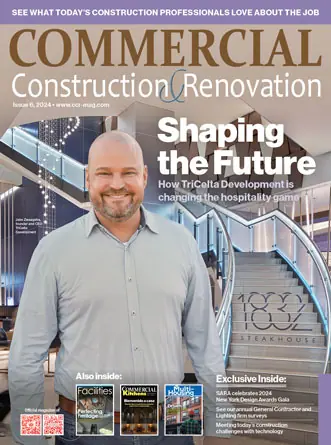






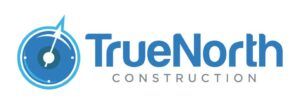


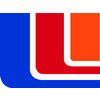
 The 2024 virtual Men’s Round Table will be held Q4, 2024, date TBD.
The 2024 virtual Men’s Round Table will be held Q4, 2024, date TBD.





